Other Signal Transduction
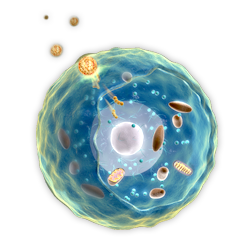
Signal Transduction
Cellular responses are triggered by proteins, drugs, or pathogens binding to specific receptors. Receptor mediated signaling is a cascade of enzymatic reactions that amplifies the signal. The agonists and antagonists modulating receptor functionality are essential tools for research and medical practice. read more
Targets for Other Signal Transduction
Products for Other Signal Transduction
- Cat.No. Nom du produit Informations
-
GC49890
β-Glycerophosphate-d5 (sodium salt hydrate)
An internal standard for the quantification of β-glycerophosphate

-
GC13863
10Panx
A peptide inhibitor of PANX1
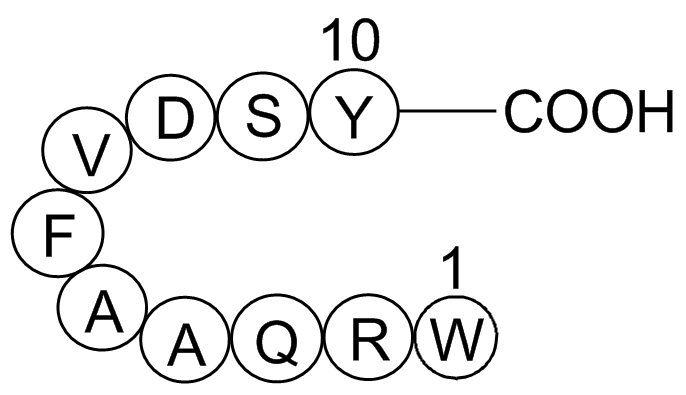
-
GC49912
13C20,15N10-Cyclic di-GMP (sodium salt)
An internal standard for the quantification of cyclic di-GMP

-
GC52141
2-Chloro-N-methyl-N-(4-nitrophenyl)acetamide

-
GC52129
3-Amino-5-hydroxybenzoic Acid

-
GC49494
4-Aminobenzylphosphonic Acid
An alkaline phosphatase inhibitor

-
GP10121
Ac-Endothelin-1 (16-21), human

-
GP10059
Acetyl Angiotensinogen (1-14), porcine

-
GP10076
Agouti-related Protein (AGRP) (25-82), human
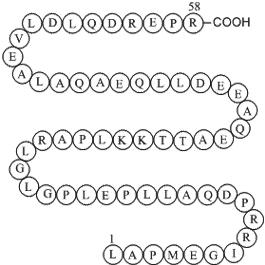
-
GC49110
AICA Ribonucleotide
An AMPK activator

-
GC52361
AMARA Peptide (trifluoroacetate salt)
A peptide substrate for AMPK

-
GP10077
Angiotensin (1-7)
Ang-(1-7) (H - Asp - Arg - Val - Tyr - Ile - His - Pro - OH) est un fragment de peptide endogène qui peut être produit à partir d'Ang I ou Ang II via des endo- ou carboxy-peptidases respectivement[1].
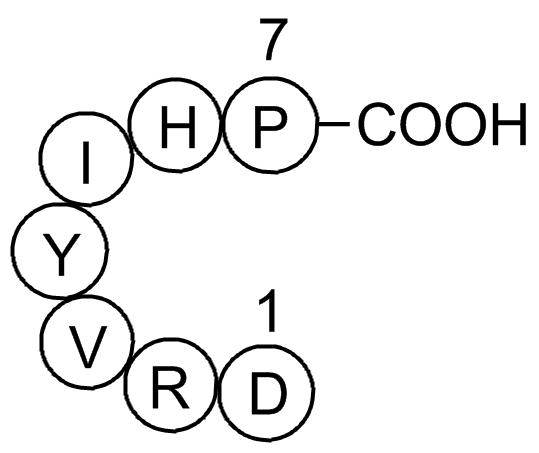
-
GP10074
Angiotensin 1/2 (1-5)

-
GP10067
Angiotensin 1/2 (1-6)

-
GP10144
Angiotensin 1/2 (1-7) amide

-
GP10012
Angiotensin 1/2 (1-8) amide
Vasoconstrictor

-
GP10025
Angiotensin 1/2 (1-9)

-
GP10045
Angiotensin 1/2 (2-7)
Vasoconstrictor

-
GP10079
Angiotensin 1/2 (5-7)

-
GP10120
Angiotensin 1/2 + A (2 - 8)
Vasoconstrictor

-
GP10087
Angiotensin I (human, mouse, rat)

-
GP10023
Angiotensin II
Un agoniste des récepteurs AT1 et AT2.

-
GP10110
Angiotensin III (human, mouse)
An agonist at AT1 and AT2 receptors

-
GP10137
ANP (1-11), rat

-
GP10061
Atrial Natriuretic Factor (1-29), chicken
Atrial Natriuretic Factor (1-29), chicken, (C130H223N51O41S5), a peptide with the sequence H2N-SPKMVQGSGCFGRKMDRISSSSGLGCKVLRRH-OH, MW= 3316.8.
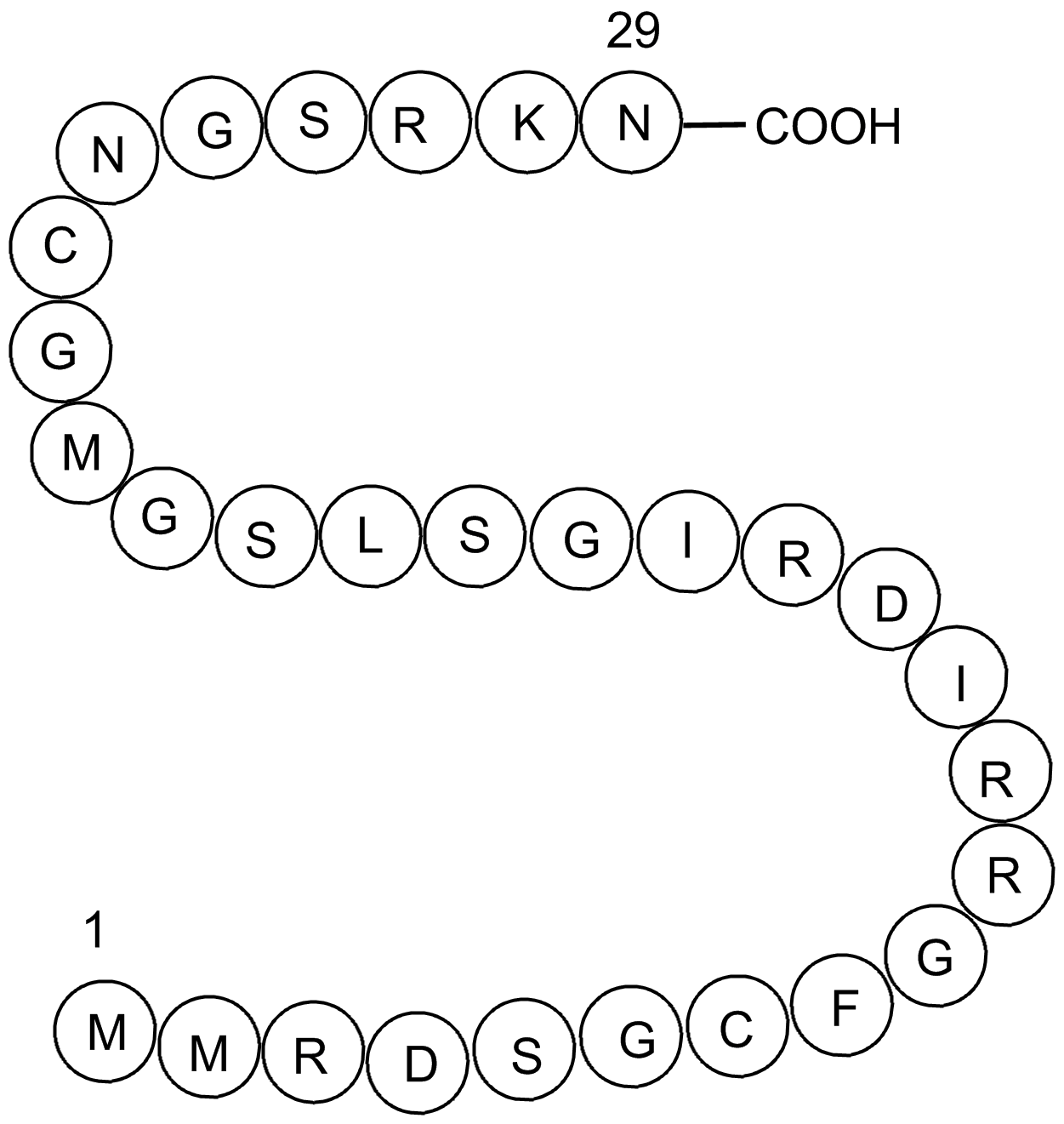
-
GC49403
Benzarone
Benzarone (Fragivix) est un puissant inhibiteur du transporteur 1 de l'acide urique humain (hURAT1), avec une IC50 de 2,8 μM dans l'ovocyte.
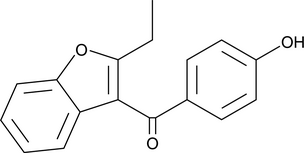
-
GC49300
BIM-46187 (hydrochloride)
An inhibitor of heterotrimeric G-protein signaling

-
GP10071
BNP (1-32), human

-
GC49079
C82
An Mtb CdnP inhibitor

-
GC49332
Calcineurin Substrate (trifluoroacetate salt)
A synthetic peptide substrate

-
GC49433
Capsiate
Capsiate, en tant qu'analogue de capsaÏcine extrait d'un cultivar non piquant de poivron rouge CH-19, est un agoniste actif par voie orale du TRPV1 .

-
GC48992
CGP 77675 (hydrate)
An inhibitor of Src family kinases

-
GC49392
CHIR98024
CHIR98024 (composé L) est un inhibiteur de la glycogène synthase kinase 3 (GSK3) avec une CE50 de 0,2566 μM.

-
GC49334
Chroman 1 (hydrochloride hydrate)
A ROCK2 inhibitor

-
GC49556
Cl-Necrostatin-1
A RIPK1 inhibitor

-
GP10134
coagulation factor II (thrombin) B chain fragment [Homo sapiens]
![coagulation factor II (thrombin) B chain fragment [Homo sapiens] Chemical Structure coagulation factor II (thrombin) B chain fragment [Homo sapiens] Chemical Structure](/media/struct/GP1/GP10134.png)
-
GP10010
COG 133

-
GC49789
Dihydronarwedine
An alkaloid and GSK3β inhibitor

-
GP10022
Dynamin inhibitory peptide
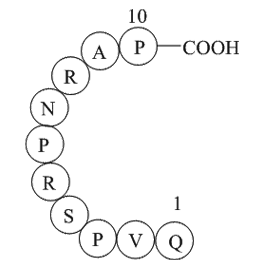
-
GC13855
Eeyarestatin I
Inhibiteur de la dégradation associée au réticulum endoplasmique (ERAD) et de la translocation des protéines.
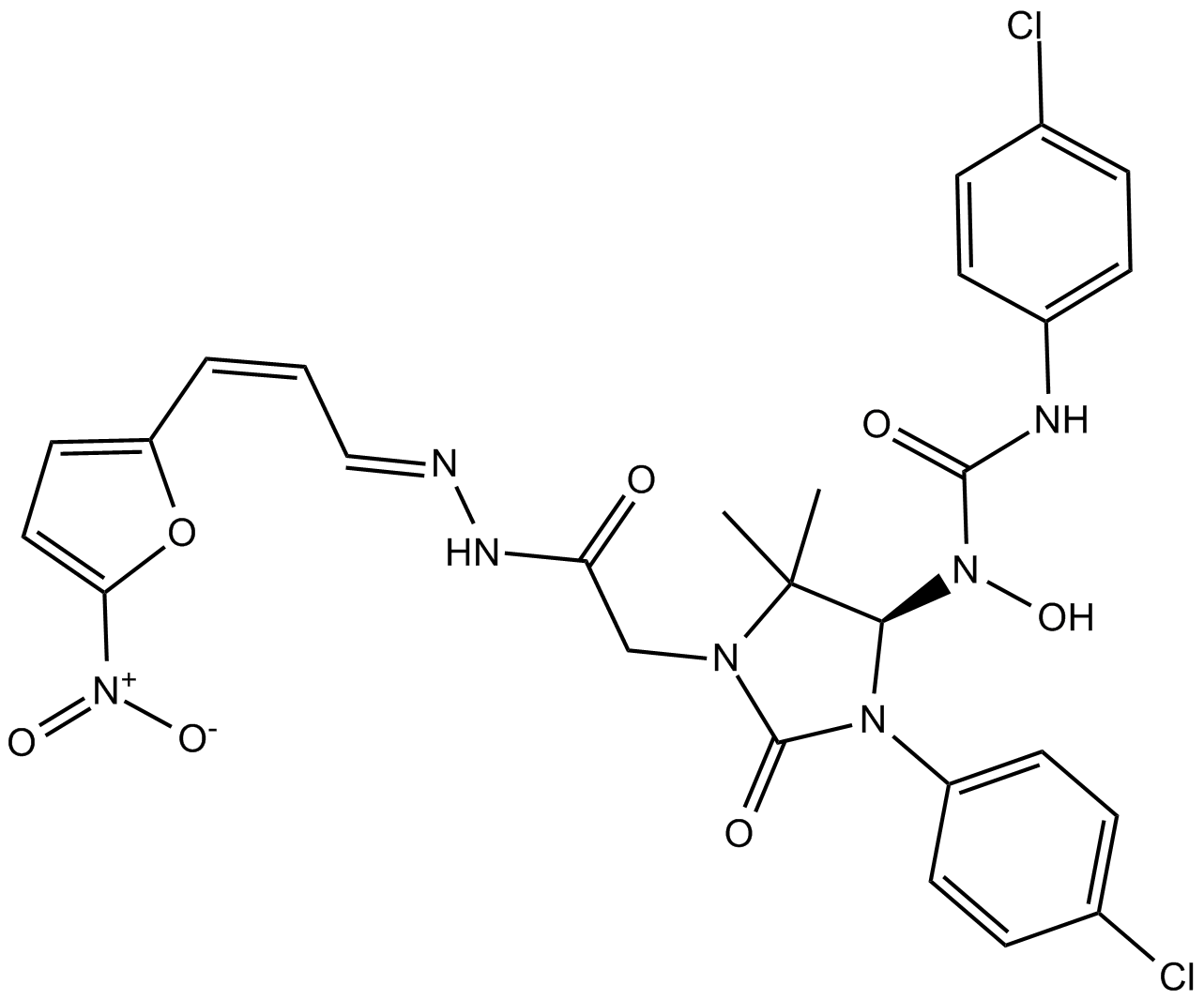
-
GP10030
EGF receptor substrate eps15 acetyl - [Mus musculus]/[Homo sapiens]
EGF receptor substrate eps15 (Eps15) has been identified as a 142-kDa substrate of the EGF receptor1.
![EGF receptor substrate eps15 acetyl - [Mus musculus]/[Homo sapiens] Chemical Structure EGF receptor substrate eps15 acetyl - [Mus musculus]/[Homo sapiens] Chemical Structure](/media/struct/GP1/GP10030.png)
-
GP10108
EGF-R (661-681) T669 Peptide
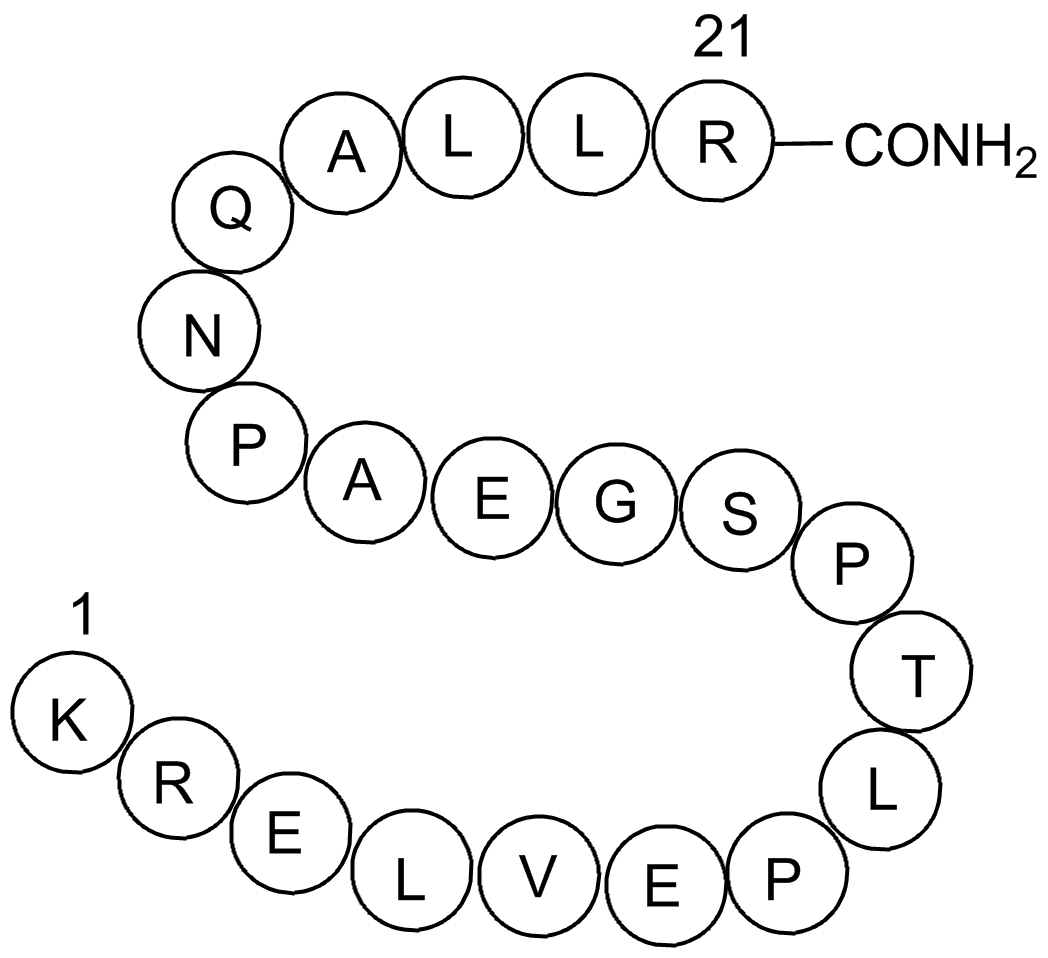
-
GC52002
Emavusertib
L'emavusertib (CA-4948) est un puissant inhibiteur d'IRAK4/FLT3 avec une activité anti-tumorale.

-
GP10065
Endomorphin-1

-
GP10117
Endostatin (84-114)-NH2 (JKC367)
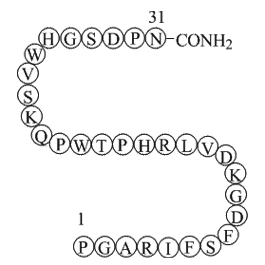
-
GP10062
Endothelin-1 (1-15), amide, human
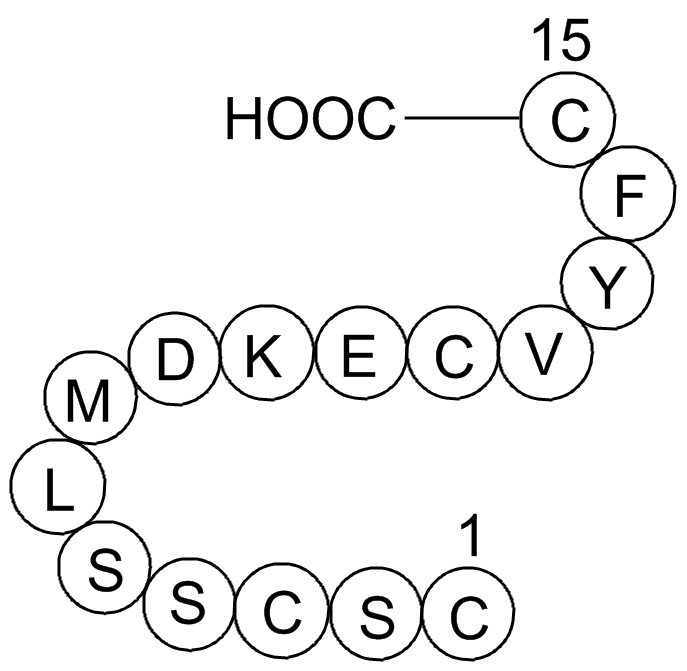
-
GC52336
ENPP1 Inhibitor 43
An ENPP1 inhibitor

-
GC52277
ENPP3 Inhibitor
An ENPP3 inhibitor

-
GC52362
ENPP3 Inhibitor 4g
An ENPP1 and ENPP3 inhibitor

-
GC52322
ENPP3 Inhibitor 4t
An ENPP3 inhibitor

-
GP10005
Epidermal growth factor receptor (994-1002) acetyl/amide
EGF-family receptor
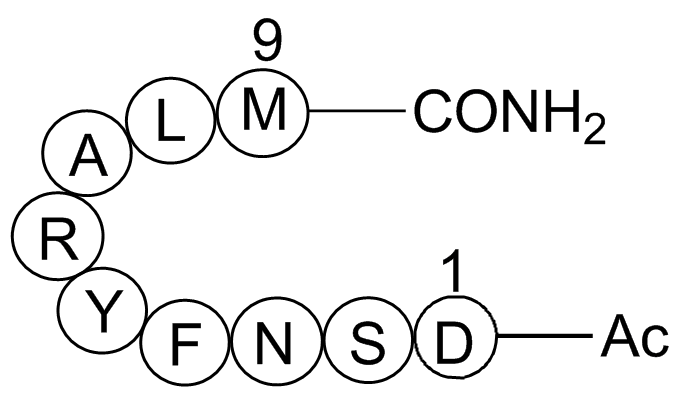
-
GP10095
Epidermal Growth Factor Receptor Peptide (985-996)
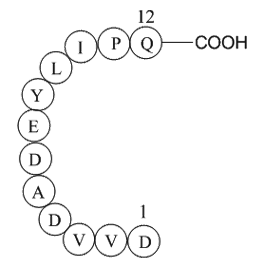
-
GP10132
erbB-2

-
GC49074
Forphenicine
A bacterial metabolite and an inhibitor of alkaline phosphatase

-
GP10092
G protein coupled receptor [Homo sapiens]
G protein coupled receptor [Homo sapiens], (C110H168N38O45), a peptide with the sequence H2N-QESHNSGNRSDGPGKNTTLHNEFDT-OH, MW= 2742.74.
![G protein coupled receptor [Homo sapiens] Chemical Structure G protein coupled receptor [Homo sapiens] Chemical Structure](/media/struct/GP1/GP10092.png)
-
GP10107
Gap 26
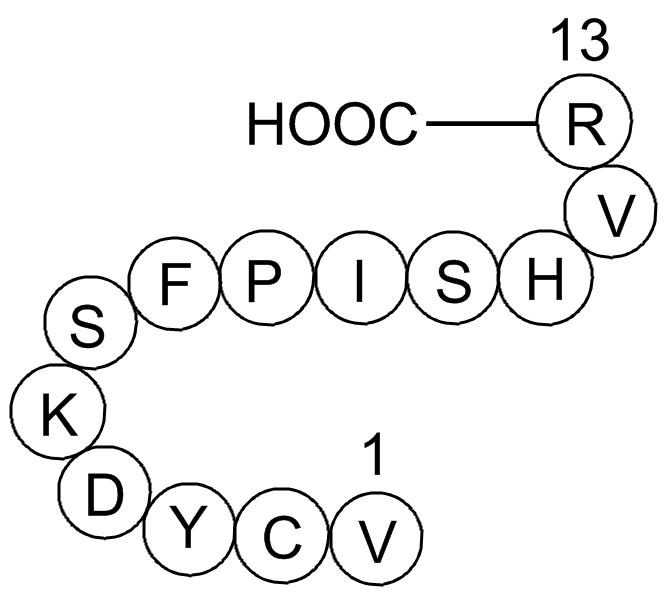
-
GP10119
Gap 27
A connexin-mimetic peptide
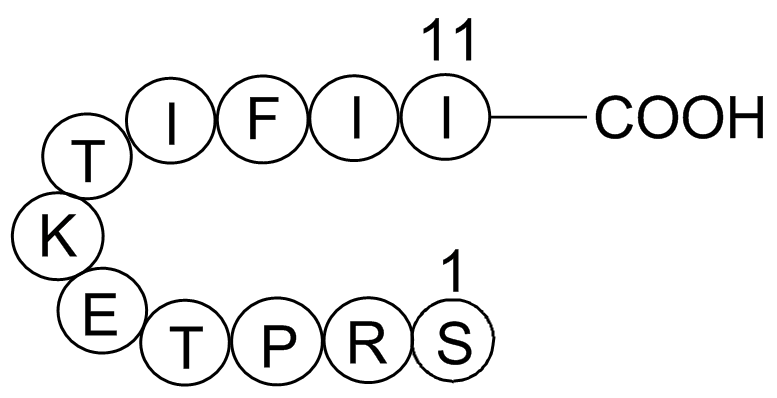
-
GC25450
GATA4-NKX2-5-IN-1
GATA4-NKX2-5-IN-1 (3i-1000) is a small-molecule compound inhibiting GATA4 and NKX2-5 transcriptional synergy with IC50 of 3 uM
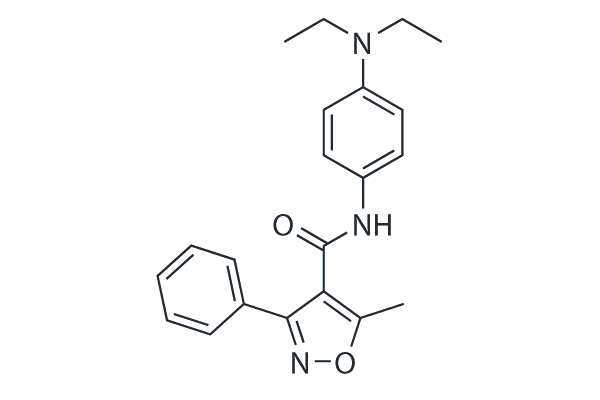
-
GP10122
Glucagon (19-29), human
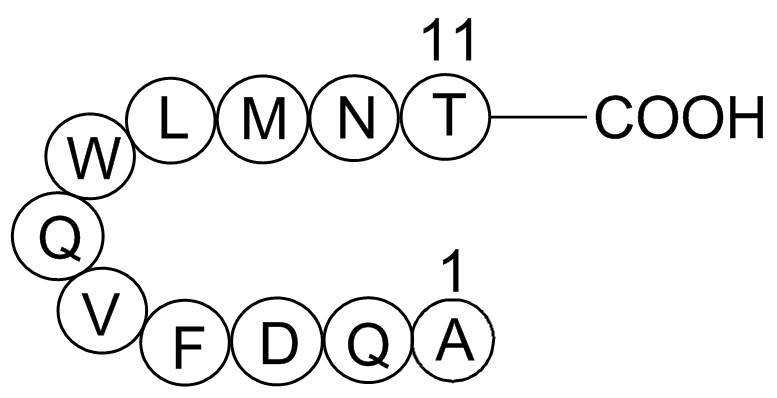
-
GP10024
Growth Hormone (1-43), human
Human Growth Hormone (1-43) peptide
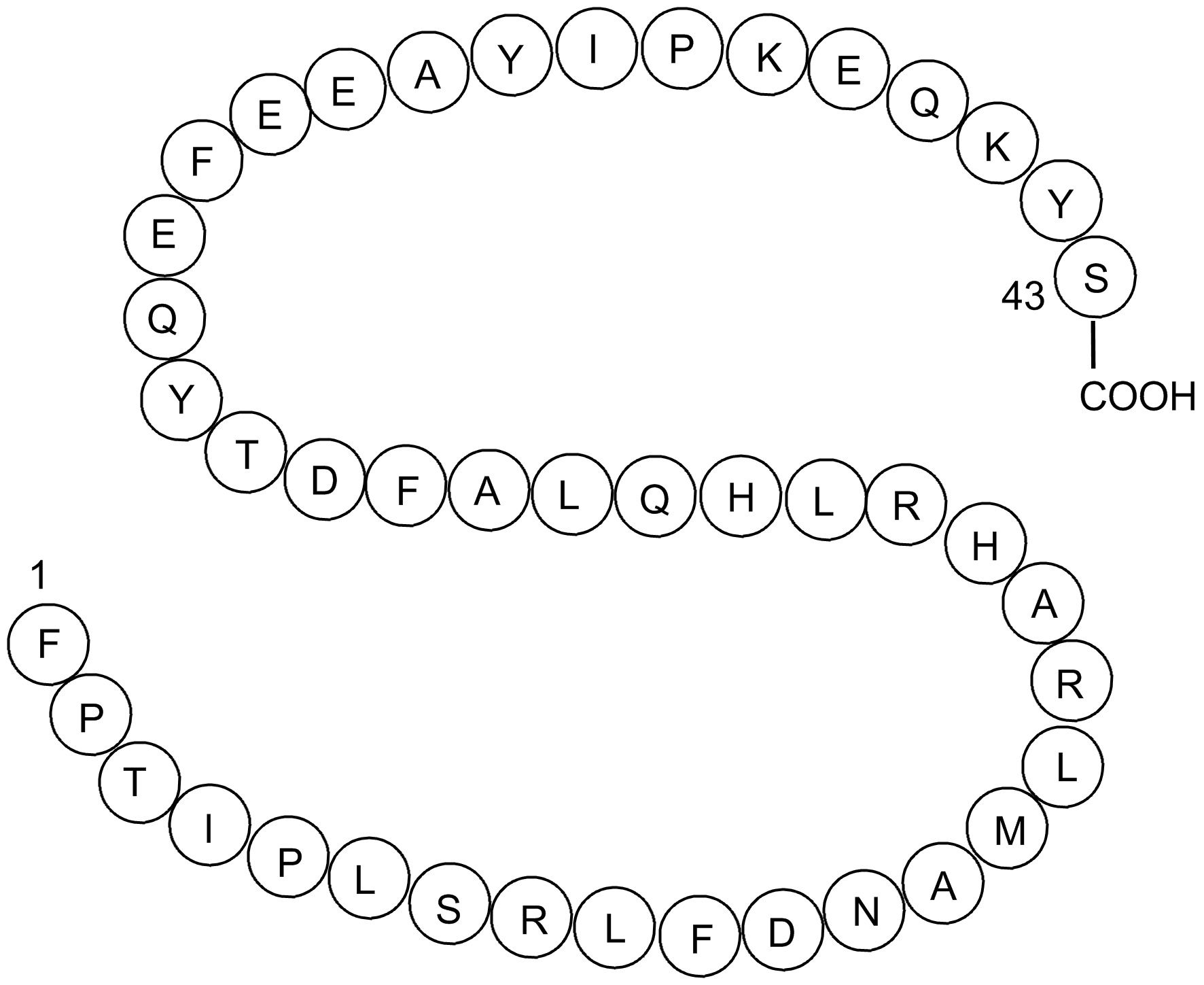
-
GC49284
GSK-A1
GSK-A1 est un inhibiteur sélectif de la phosphatidylinositol 4-kinase PI4KA (PI4KIIIα) de type III avec un pIC50 de 8,5 À 9,8.

-
GP10004
GTP binding protein 1 fragment [Multiple species]
Signal transducing molecules
![GTP binding protein 1 fragment [Multiple species] Chemical Structure GTP binding protein 1 fragment [Multiple species] Chemical Structure](/media/struct/GP1/GP10004.png)
-
GP10115
GTP-Binding Protein Fragment, G alpha
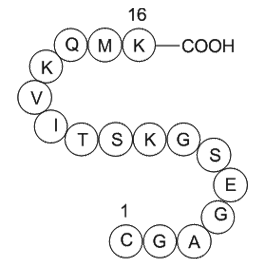
-
GP10041
Insulin like growth factor II fragment variant
Insulin like growth factor II fragment variant has a sequence of Thr-Pro-Thr-Lys-Ser-Glu-Arg.
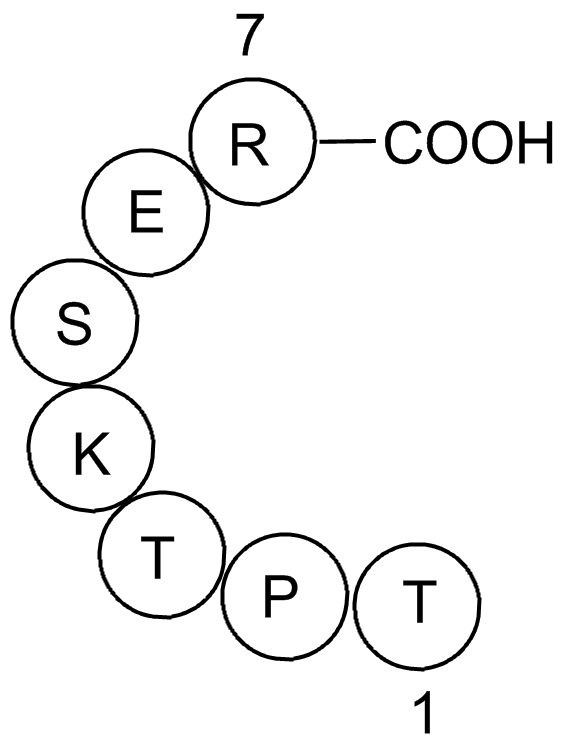
-
GP10029
Interleukin II (60-70)
Cytokine,regulating WBC

-
GC52328
KYL (trifluoroacetate salt)
An EphA4 inhibitor

-
GC17779
Levetiracetam
Le lévétiracétam, un agent antiépileptique, se lie À la protéine de la vésicule synaptique SV2A.
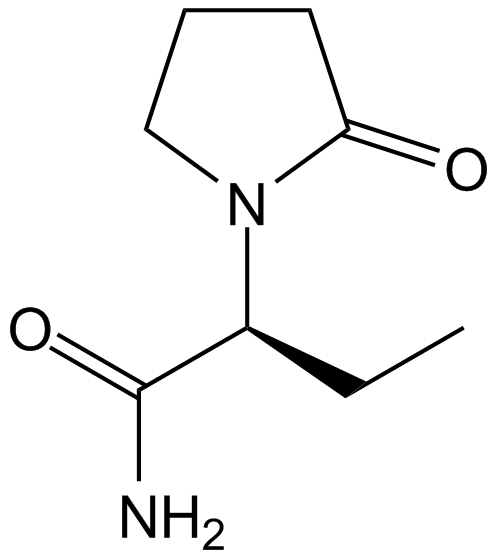
-
GP10140
MAP kinase fragment [Multiple species]
![MAP kinase fragment [Multiple species] Chemical Structure MAP kinase fragment [Multiple species] Chemical Structure](/media/struct/GP1/GP10140.png)
-
GP10066
Melanocyte stimulating hormone release inhibiting factor

-
GC49269
Myr-ZIP
A PKMζ inhibitor

-
GC49090
Nilvadipine-d4
An internal standard for the quantification of nilvadipine

-
GP10011
Nitric Oxide Synthase (599-613) Blocking Peptide, Bovine Endothelial Cell

-
GP10069
Parathyroid hormone (1-34) (human)
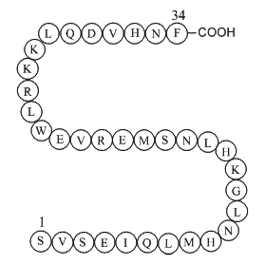
-
GC52151
PKCθ Inhibitor (hydrochloride)

-
GC49265
PKI (14-22) amide (myristoylated) (trifluoroacetate salt)
A PKA inhibitor

-
GP10053
Prothrombin (474-477) [Mus musculus]
![Prothrombin (474-477) [Mus musculus] Chemical Structure Prothrombin (474-477) [Mus musculus] Chemical Structure](/media/struct/GP1/GP10053.png)
-
GC49221
QLT0267
An ILK inhibitor

-
GP10042
Rhodopsin peptide
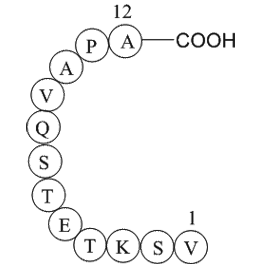
-
GC52115
S-99
An inhibitor of ASK1

-
GP10104
S6 Kinase Substrate Peptide 32
Measures the activity of kinases that phosphorylate ribosomal protein S6.
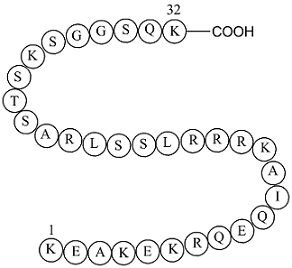
-
GC11058
Scrambled 10Panx
Panx-1 mimetic inhibitory peptide, blocks pannexin-1 gap junctions
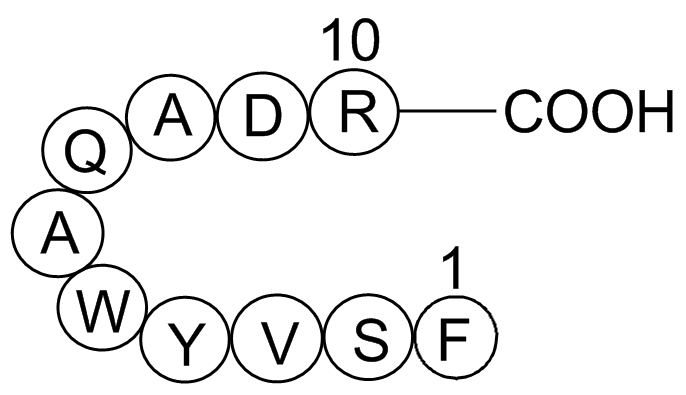
-
GP10093
signal transducer and activator of transcription 5 (322-343) acetyl/amide
signal transducer and activator of transcription 5 (322-343) acetylamide, (C115H193N27O33), a peptide with the sequence Ac-DIISALVTSTFIIEKQPPQVLK-amide, MW= 2481.92.
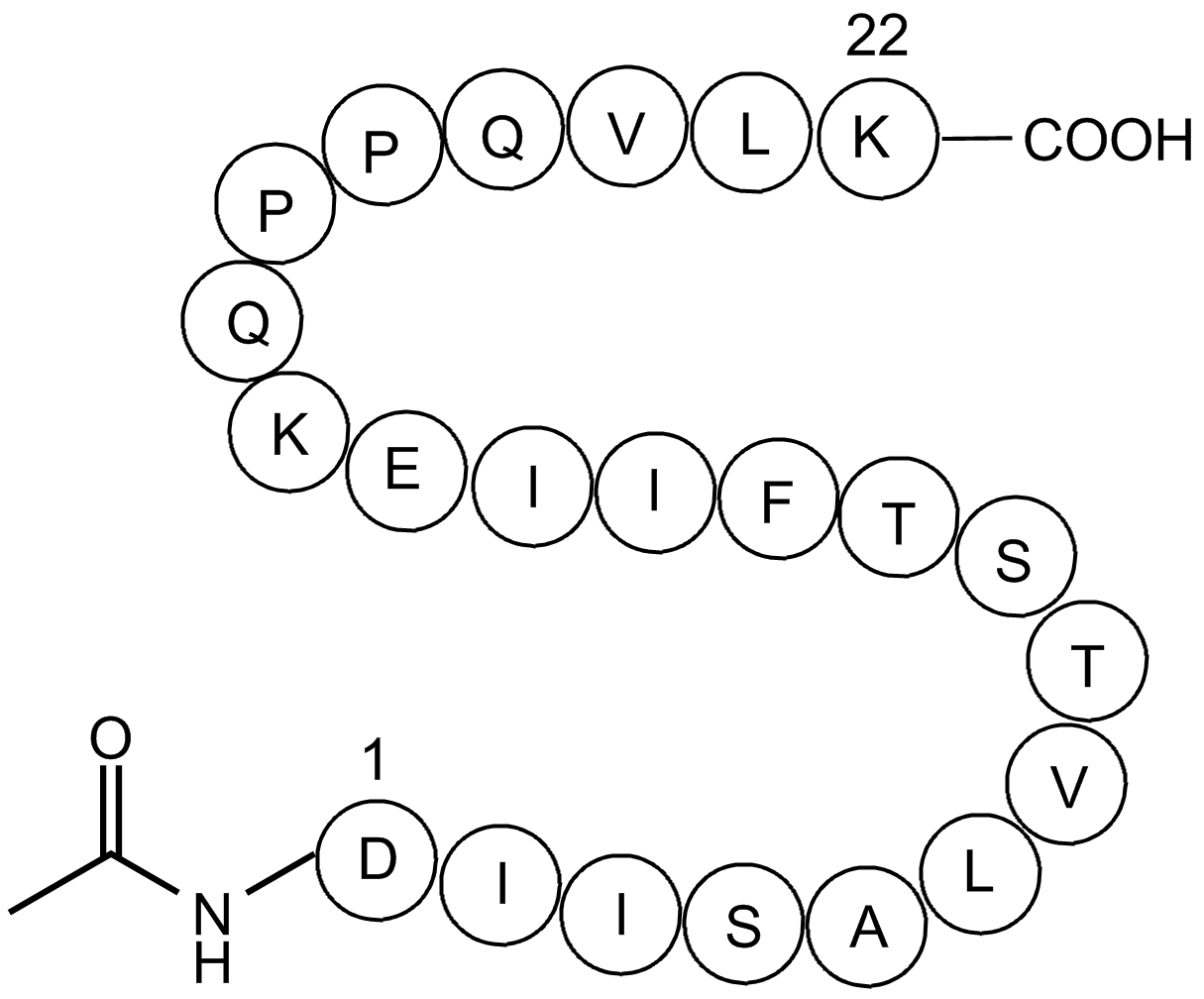
-
GP10145
signal transducer and activator of transcription 6 fragment

-
GP10085
Thrombin Receptor Activator for Peptide 5 (TRAP-5)

-
GC49692
Tofacitinib-d3 (citrate)
An internal standard for the quantification of tofacitinib

-
GC49150
Tpl2 Kinase Inhibitor (hydrochloride)
A Tpl2 inhibitor

-
GP10112
TRH Precursor Peptide
Thyrotropin Releasing Hormone Precursor Peptide

-
GP10091
Vasonatrin Peptide (1-27)
Vasonatrin Peptide (1-27), (C124H198N36O36S3), a peptide with the sequence H2N-GLSKGCFGLKLDRIGSMSGLGCNSFRY-OH, MW= 2865.4.
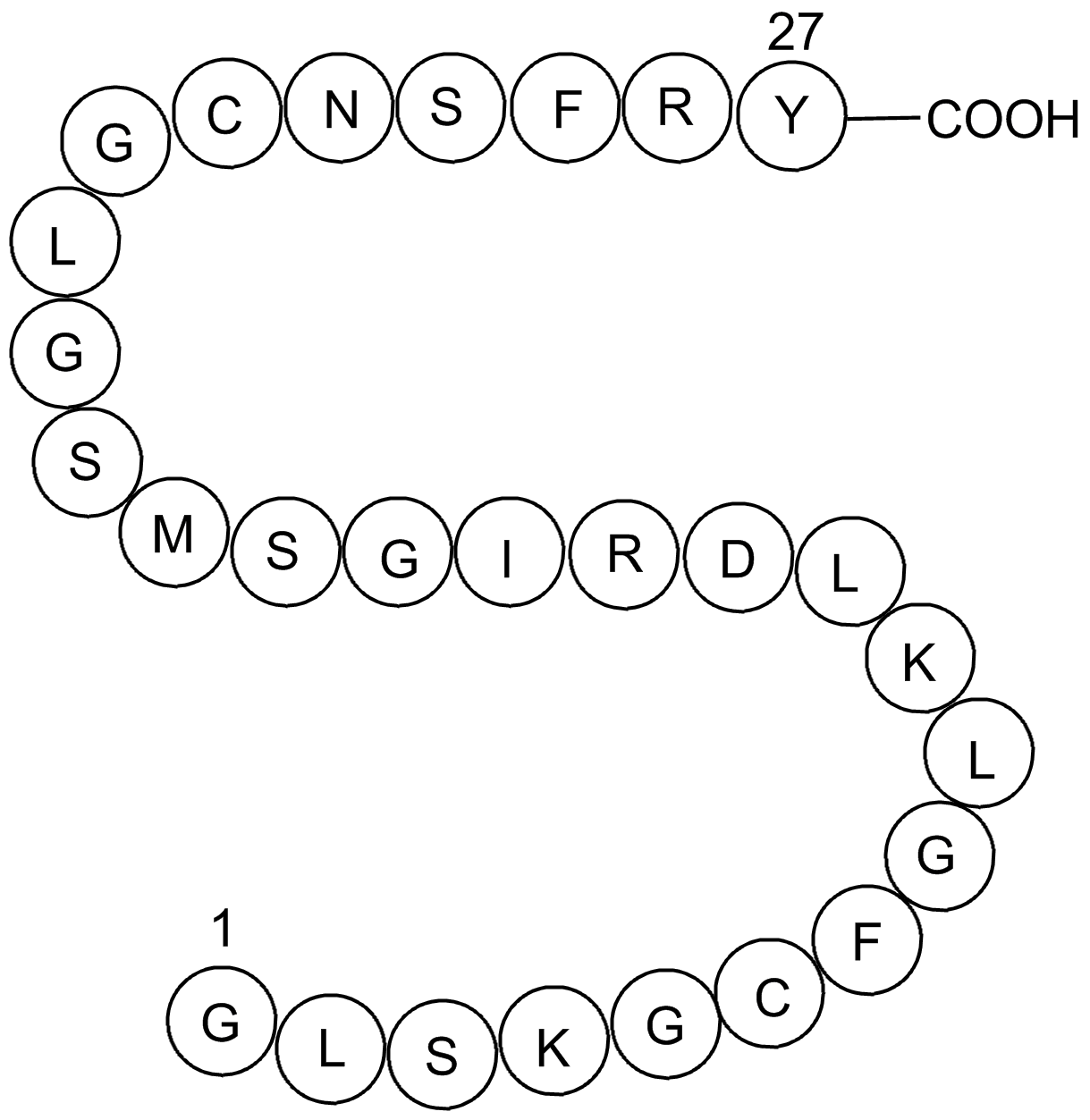
-
GC52274
Y-33075 (hydrochloride)
An inhibitor of ROCK2

-
GP10017
[Ser25] Protein Kinase C (19-31)
PKC substrate
![[Ser25] Protein Kinase C (19-31) Chemical Structure [Ser25] Protein Kinase C (19-31) Chemical Structure](/media/struct/GP1/GP10017.png)
-
GP10096
β-Interleukin I (163-171), human

-
GP10080
β-Interleukin II (44-56)

-
GP10111
β-Pompilidotoxin



